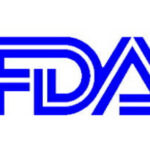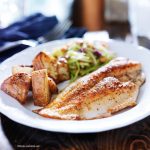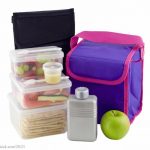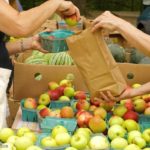Have you ever wanted to tell the FDA about a problem with food? The FDA has started a streamlined food complaints program to make the process easier. The complaints can be about an illness, an injury, an allergic reaction, concerns about a dietary supplement, or any concern about defects in the safety or quality of an FDA-regulated food. This is part of the Human Foods Program. Until this new program was initiated, consumer complaints were directed to Consumer Complaint Coordinators in the FDA's Office of Regulatory Affairs. The phone numbers associated with those coordinators will no longer be active. Instead, consumers can call 1-888-SAFEFOOD (1-800-723-3663). Then, officials with the Human Foods Program will receive, triage, and evaluate complaints, and the new Office of … [Read more...]
Food Safety Emergency Preparedness Before a Storm
Get food safety emergency preparedness tips before a storm from the USDA. September is National Food Safety Education Month and emergency Preparedness Month. And with Hurricane Helene bearing down on the southeastern United States, it's time to get ready. For a chart about how to prepare, see Food Safety Before An Emergency. Knowing how to keep your food and water safe will minimize danger from spoiled food and reduce the risk of foodborne illness. It's a good idea to always be ready, but when a storm watch or warning is issued, start to prepare. First, fill empty spaces in your freezer with frozen plastic jugs of water or bags of ice. They can serve as fresh water as needed. And freeze items you don't need right away. Fill jugs with fresh water and fill your bathtub as well. … [Read more...]
Back to School Meal Prep to Keep Your Family Safe
Get great and easy back to school meal prep ideas and tips to keep your family safe from Foodsafety.gov, including how to pack safe lunches. It's not difficult; you just need to pay attention to certain steps. First of all, make a shopping list before you go to the store. Know which foods and recipes you'll be making for the week, then look in your pantry, fridge, and freezer to find out what ingredients you already have and what you'll need. When you are shopping, pick up perishable and frozen foods last so they stay cold longer. Separate raw meat and poultry products from veggies and fruit, putting them in bags to catch any raw juices. And make sure all of your food is in the fridge or freezer within two hours of checking out. When you start to prepare food, the first thing … [Read more...]
Back to School Lunchbox Safety Tips From the USDA
Get back to school lunchbox safety tips from the USDA to keep your kids safe and healthy all year. The most important thing to remember is to keep hot foods hot and cold foods cold. You can accomplish this by using insulated soft-sided lunch bags, two cold sources, and insulated containers for hot foods. It is not safe to pack lunches in a paper bag. Remember the the danger zone is between 40°F and 140°F. Food should be colder or hotter than that range. In the danger zone, bacteria can double in food in 20 minutes. And pack a disposable wipe, or remind your child to wash their hands before eating. For cold lunches, use a soft sided lunch bag and include at least two cold sources. You can use two frozen gel backs that are at least 5 inches by 3 inches, or combine a frozen gel pack … [Read more...]
Stay Food Safe While Shopping at the Farmers Market
Learn how to stay food safe while shopping Farmers Markets with tips from the USDA. These markets are available seasonally and year round across the country. You can buy fruits, vegetables, meats, cheeses, and beverages, as well as prepared foods in some states. The first tip is to watch the temperature. Perishable foods should be out of refrigeration no longer than two hours, and that time shrinks to one hour if the ambient air temperature is 90*F or higher. Bacteria can double in a food in 20 minutes when the food is not refrigerated. Look for vendors who display perishable items like soft cheeses and raw meats on ice, in a cooler, or with refrigeration. And if you intend to buy these foods, bring an insulated bag or cooler with cold sources such as gel packs, ice, or frozen … [Read more...]
FDA Revokes Regulation Allowing Brominated Vegetable Oil
The FDA has revoked the regulation allowing brominated vegetable oil (BVO) in food. This oil is modified with bromine. He agency concluded that the intended use of BVO in food is no longer considered safe. A series of studies conducted in collaboration with the National Institutes of Health found the potential for adverse human health effects from the use of brominated vegetable oil. The FDA announced plans to ban this product last year. And the state of California banned BVO along with other compounds before the FDA announced their decision. Brominated vegetable oil was removed from the Generally Regarded as Safe (GRAS) list in 1970. It was used in small amounts to keep the citrus flavoring from floating to the top in some beverages. Few beverages in the United States contain … [Read more...]
Fourth of July Food Safety Tips From the USDA
The USDA is offering Fourth of July food safety tips so you can have a great celebration and offer safe food for your family and friends to enjoy. It's easy: just follow the four steps of clean, separate, cook, and chill. When you are serving guests of varying ages and health concerns, it's very important to make sure that the food at your party or gathering is wholesome and safe. That means you need to follow certain steps in the kitchen to the letter. They are: CLEAN. Wash your hands and surfaces such as countertops often. Hands should be washed for 20 seconds with clean water and soap. (Sing Happy Birthday to You twice for accurate timing.) If no running water is available, use hand sanitizer or moist towelettes that contain at least 60 percent alcohol. SEPARATE. Separate … [Read more...]
Memorial Day Food Safety Tips From USDA to Stay Safe
These Memorial Day food safety tips from the USDA will help you and your family stay safe this summer. Summer cooking and parties are prime time for possible food poisoning cases for several reasons. Warmer temperatures and outdoor picnics, parties, and grilling pose special challenges. Under Secretary for Food Safety Dr. Emilio Esteban said in a statement, "The bacteria that cause foodborne illness love the summertime as much as we do because they thrive and multiply quickly in warmer temperatures. This causes illnesses to spike during the summer. As we all spend more time outside, it is important to remember these food safety steps to keep your friends and family safe." First, always wash your hands thoroughly with soap and water before you start cooking and eating. If safe … [Read more...]
Keep Spring Holiday Meals Safe With Tips From the USDA
Keep spring holiday meals safe with tips from the USDA. This year, the three major holidays of Easter, Eid, and Passover are all happening in early spring. USDA Under Secretary for Food Safety Dr. Emilio Esteban said in a statement, "The holiday season is a special time to gather with friends and family and enjoy traditional meals, Whether you’re celebrating your Easter dinner with ham, Eid lunch with lamb, or Seder meal with brisket, remember to keep food safety at the forefront." Food safety is especially important when you have people with varied health statuses and ages at your spring holiday meals table, because some of those people are more susceptible to serious complications from food poisoning. In addition, some foods must be prepared early, which extends the time for … [Read more...]
Learn About Sausages and Food Safety From the USDA
Learn about sausages and food safety from the USDA, with tips on buying, storing, and cooking this type of meat product. Sausages are sold either uncooked or ready-to-eat. This information will be clearly marked on the product package. Types of Sausages There are two broad categories of sausage: ready to eat and uncooked. Ready to eat sausages are dry, semi-dry, and/or cooked. Dry sausages can be smoked, unsmoked, or cooked. Semi-dry sausages are typically heated in the smokehouse to partially dry and fully cook the product. Cooked sausages, such as bologna and frankfurters, are cooked and may also be smoked. Uncooked sausages are raw and must be cooked to a safe final internal temperature before eating. Deciphering the Label The label on all sausage products will give you the … [Read more...]













